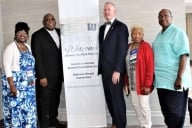You have /5 articles left.
Sign up for a free account or log in.
The problem of older, more experienced and powerful people taking advantage of subordinates is a serious one and contributes to (you knew I was going to say it) rape culture. So when I saw this story, I was glad that a major university was taking steps to address it. I wondered why this was news — why so few other universities had this policy.
Full disclosure: I became involved with a professor when I was in college. He didn't teach in my department, so it didn't feel like we were breaking any rules (and the rules were much looser then, anyway). He was in his thirties; I was twenty, but I considered myself mature and sophisticated, and he admired my acting and stage presence, so I thought that made us equal. He was a nice guy. It was hard to imagine any pitfalls.
Then he started dating a friend of mine. He told her we had broken up, but he never told me. It turned out he had also neglected to tell his wife that he had separated from her, and had hidden a few other gems that his friends (some of whom did teach in my department, and one of whom was an important mentor to me) knew but didn't feel moved to pass on to me.
Everything blew up at an event attended by both students and faculty. My mature, woman-of-the world self got roaring drunk, confronted him in a tearful, rageful and unproductive way, and was then dramatically sick in the garden. I don't think he suffered any repercussions for this, but I know it took me a while to be taken seriously again in my department, and I never regained my mentor's respect.
I was lucky, overall. I may have forfeited a few recommendations, but my grades didn't suffer, except for the damage I did myself by wasting time on this soap opera. I found that I respected my mentor less for judging me and not my lying lover. I had thought I was "in love," but after all of these revelations it was clear that I hadn't known him at all. Within six months I had moved on and chalked it all up to a learning experience.
Since then, I have known professor-student romances that resulted in emotional upheaval severe enough to cause the student to fail out, and academic damage, including ruining a student's research and grant prospects when she tried to leave the relationship. (I have also known a few that worked out beautifully, but these would no doubt have succeeded just as well had the couple waited until graduation.) Students are dealing with enough; they don't need these extra stressors.
My father always told me to take a page from animals in the wild: "They don't mess where they eat." It is sound advice, and although it applies to everyone, the responsibility to enforce it ethically rests with more mature, established and powerful individual in a relationship.





